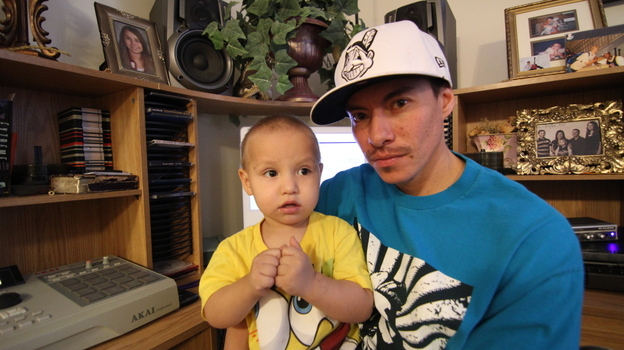By Taki Telonidis
"Native Americans grasp that culture of hip-hop because of the struggle," he says. "Hip-hop was talking about the ghetto life, poverty, crime, drugs, alcohol, teen pregnancy; all that crazy stuff that happens in the ghetto is similar to the reservation life. We can relate to that."
Supaman says he saw that crazy stuff as a kid. He says his parents were alcoholics and he spent lots of time in foster care before moving in with his grandfather. And for as long as he can remember hip-hop was playing in the background, like a soundtrack. When he was 24, Supaman decided it was time to make his own music.
"It was just nonsense," he says. "it was just dumb. It was like gangsta rap, or something. The way hip-hop influenced me in my earlier years is in a negative way. I mean, I hate to say that, but it's true."
He says he and his friends took the stories they heard in rap songs and made them real life. "We would play the part, you know. We were wannabees, trying to be, like, these rappers on the rez. So we started doing the crime, robbing, went into houses and trade the merchandise and then get weed from the merchandise, and then started selling."
Supaman says he got lucky—he was never caught breaking the law, and as his music career gained momentum, it seemed hip-hop could be his ticket to a better life.
Below: "Rapper Supaman with the great Crow Nation chief Plenty Coups on his shirt and his son, Brayden Lecrae, on his lap."


No comments:
Post a Comment
Note: Only a member of this blog may post a comment.